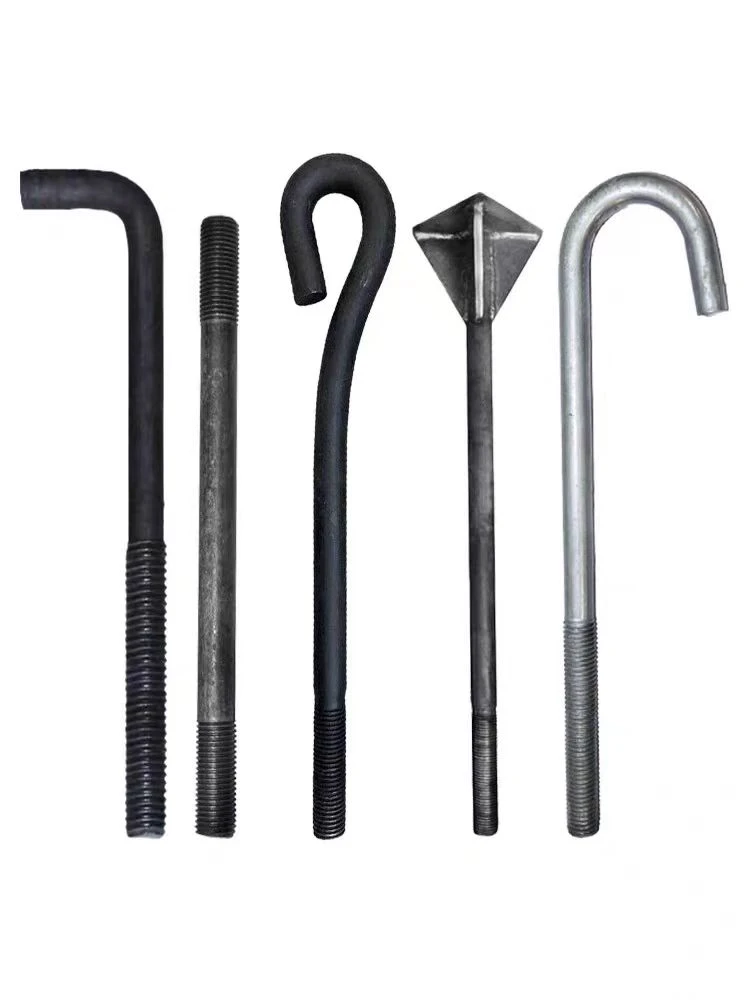

thick washers
Oct . 16, 2024 07:31 Back to list
thick washers
Understanding Thick Washers Applications and Benefits
In the field of engineering and manufacturing, the smallest components often play a crucial role in ensuring the efficiency and safety of larger structures. Among these components, thick washers are frequently overlooked, yet they serve a vital purpose in various applications. In this article, we will explore what thick washers are, their applications, the materials they are made from, and the benefits they offer.
What are Thick Washers?
A washer is a flat disc or ring-shaped component that is used to distribute the load of a threaded fastener, such as a bolt or nut. Thick washers, as the name suggests, have a greater thickness than standard washers. This added thickness enhances their load-bearing capabilities and allows them to perform effectively in demanding situations.
Importance of Thick Washers in Engineering
Thick washers are essential in situations where a higher load distribution is required. They are particularly advantageous in applications involving soft materials, where they can prevent the fastener from sinking into the substrate. By providing a larger surface area, thick washers help to spread the load over a wider area, reducing the risk of damage to the material being fastened.
Applications of Thick Washers
Thick washers have a diverse range of applications across multiple industries. Here are some of the primary areas where you can find them
1. Construction In construction, thick washers are often used with structural bolts. They help secure connections in steel beams, heavy machinery, and various load-bearing systems. Their ability to distribute load prevents structural failure.
2. Automotive Industry In automotive applications, thick washers are used to secure components such as engine mounts and suspension systems. They help in maintaining alignment and providing stability to moving parts.
3. Aerospace The aerospace industry demands a high level of safety and reliability, and thick washers play a crucial role in aircraft assembly. They are used in critical applications where vibration and fatigue can lead to failure, ensuring that components remain securely fastened during operation.
4. Heavy Machinery Thick washers are commonly found in heavy machinery, such as excavators and cranes. Their robustness allows them to handle the sheer force and weight of these machines, contributing to overall operational safety.
5. Marine Applications In marine environments, thick washers are often used to secure equipment on boats and ships. The corrosion resistance of certain washer materials also helps protect against the harsh effects of saltwater.
Material Choices for Thick Washers
thick washers

The effectiveness of thick washers not only depends on their size but also on the materials from which they are made. Some common materials include
- Steel High strength and durability make steel washers a popular choice for heavy-duty applications. They can be plated or coated to enhance corrosion resistance.
- Stainless Steel For applications in corrosive environments, stainless steel thick washers are preferred due to their excellent resistance to rust and oxidation.
- Plastic In applications where electrical insulation is necessary, plastic washers provide a lightweight and non-conductive option.
- Bronze and Brass These materials are often chosen for their resistance to wear and corrosion, making them ideal for marine and chemical applications.
Benefits of Using Thick Washers
The inclusion of thick washers in an assembly offers several notable benefits
- Load Distribution As mentioned earlier, thick washers help to evenly distribute the load, reducing the risk of damage to soft materials.
- Vibration Resistance Heavy machinery and automotive applications can produce significant vibrations. Thick washers help to maintain the integrity of the assembly, preventing loosening over time.
- Preventing Fatigue By minimizing wear and tear on both the washer and the surrounding material, thick washers extend the life of the assembly.
- Flexibility in Design With various thicknesses and materials available, engineers have the flexibility to choose the right washer for specific applications, optimizing performance.
Conclusion
Thick washers may seem like a minor component, but their substantial impact on load distribution, stability, and longevity makes them indispensable in numerous applications. Understanding their functionality and advantages allows engineers and manufacturers to make informed choices, ultimately leading to safer and more efficient designs. Whether in construction, automotive, aerospace, or marine industries, thick washers play an essential role in ensuring the integrity of mechanical assemblies.
Latest news
-
Premium Fasteners Manufacturer | AI-Driven Solutions
NewsAug.01,2025
-
Hot Dip Galvanized Bolts - Hebei Longze | High Strength, Corrosion Resistance
NewsAug.01,2025
-
High-Strength Hot Dip Galvanized Bolts - LongZe | Corrosion Resistance, Custom Sizes
NewsAug.01,2025
-
Best Self Tapping Screws for Drywall - Fast & Secure Installation
NewsJul.31,2025
-
High-Strength Hot Dip Galvanized Bolts-Hebei Longze|Corrosion Resistance&Customization
NewsJul.31,2025
-
Hot Dip Galvanized Bolts-Hebei Longze Metal Products|Corrosion Resistance&High Strength
NewsJul.31,2025

